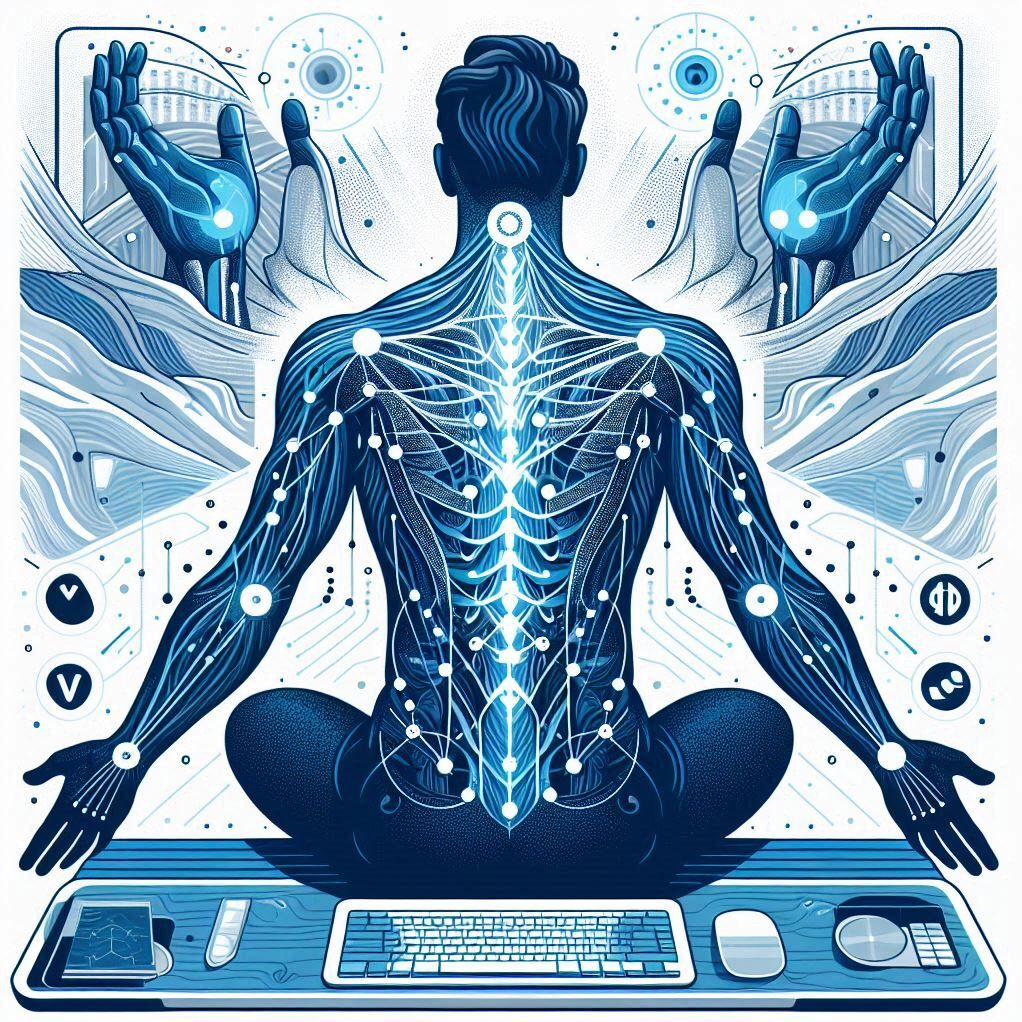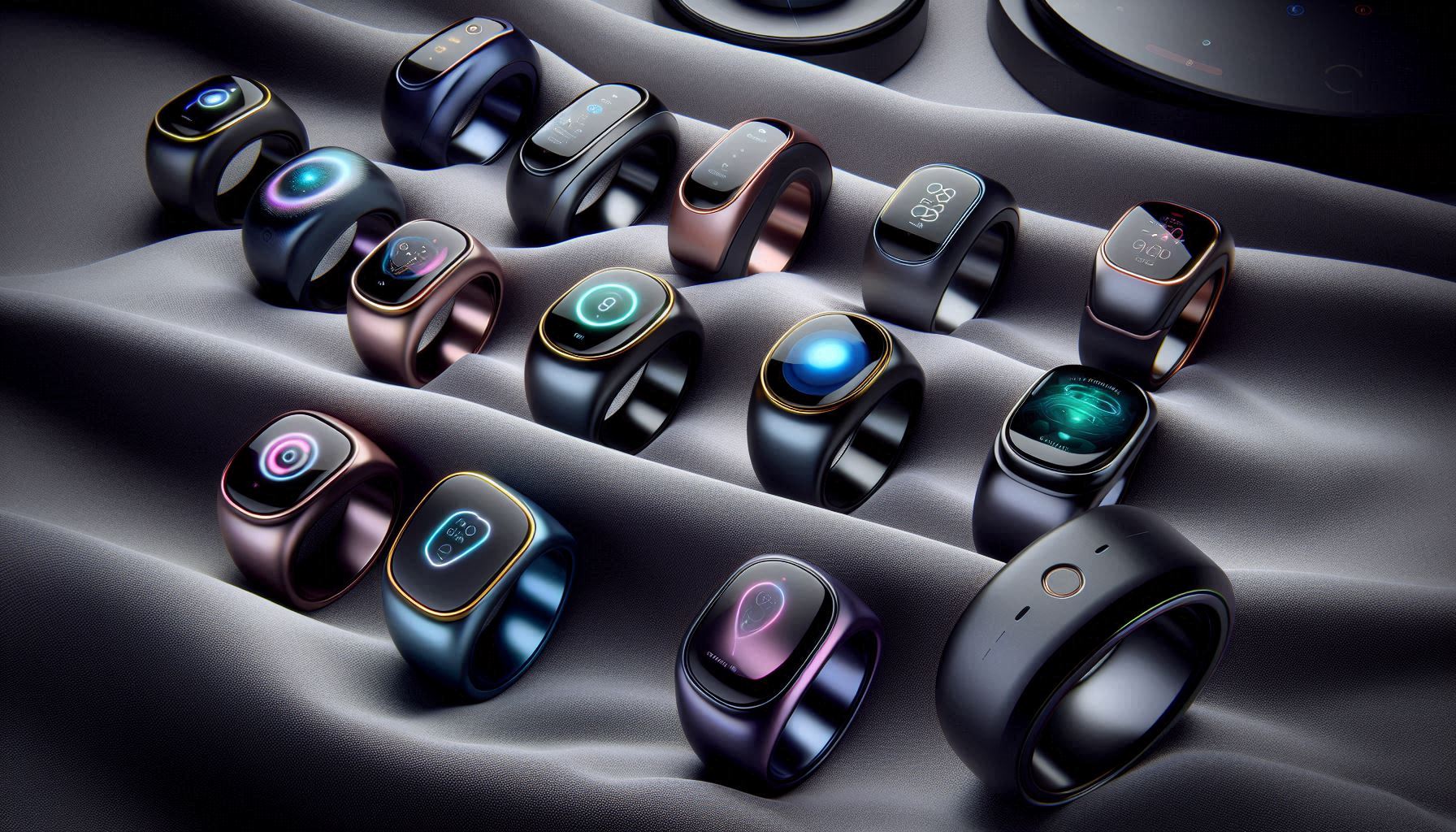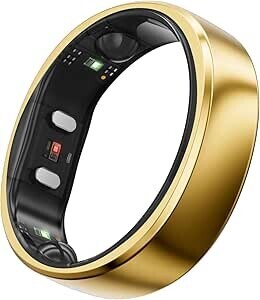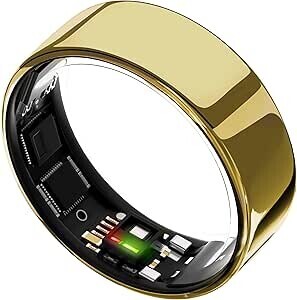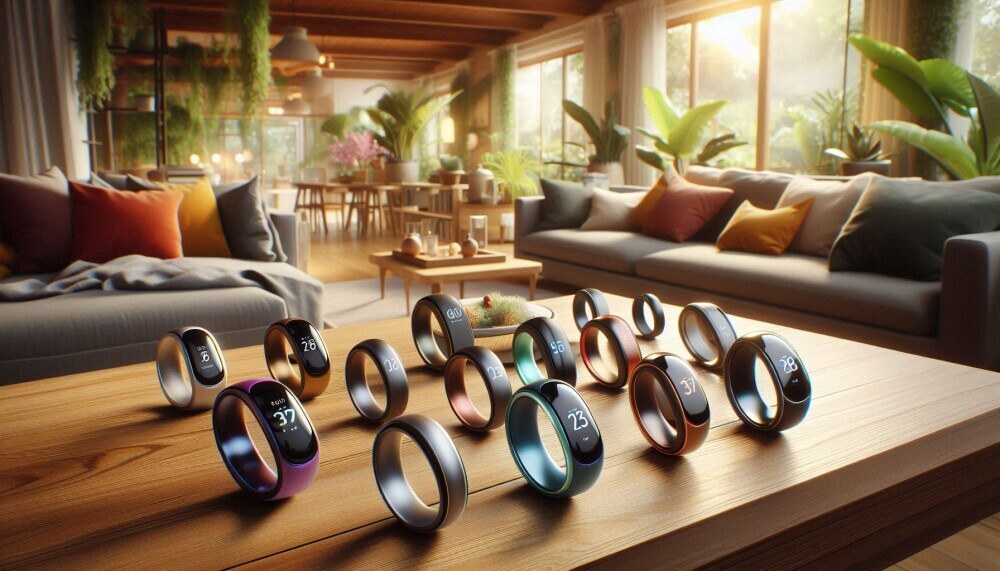A very warm welcome to our blog Vertevia.com. In this article, we shall be looking into the subject of Can Smart Rings Detect Dehydration. Wearable health tech has really evolved over recent years and they have remarkable capabilities for monitoring our health and fitness and general wellbeing. Let’s get going with main content of this article.
Introduction
In today’s connected world, wearable health technology is no longer limited to bulky wristbands or smartwatches. Smart rings, a new wave of compact, sensor packed wearables are quietly changing how we track health. One area gaining traction is hydration monitoring, as staying properly hydrated is critical for performance, cognition, cardiovascular health, and energy. But the big question is: can smart rings really detect dehydration?
The short answer is, they’re getting close. While no consumer grade smart ring directly measures hydration levels with absolute precision (yet), several use indirect biometric markers, like heart rate variability (HRV), skin temperature, sleep quality, and recovery metrics. This helps to suggest when dehydration may be impacting your body. This article breaks down how smart rings contribute to hydration awareness, who should consider wearing one, the best models available today, and how to maximize their use for overall health insight.
Why Wear a Smart Ring and Who Should Use One?
Smart rings offer a powerful blend of form, function, and discretion. They’re worn comfortably on your finger and often go unnoticed while delivering deep health insights around the clock. Unlike smartwatches, smart rings don’t buzz with notifications or require daily charging. Most focus exclusively on wellness metrics like sleep quality, readiness scores, HRV, respiratory rate, and skin temperature variations, all of which can indicate early signs of dehydration or physical stress.
Who should wear a smart ring?
- Athletes & fitness enthusiasts: To monitor recovery and optimize hydration pre and post training
- Busy professionals: For stress, sleep, and energy insights that reflect hydration levels
- Health conscious individuals: Seeking a minimalist yet effective tool for long term wellness tracking
- Those with chronic conditions: Monitoring heart rate or sleep that may be impacted by hydration status
Smart Rings That Offer Hydration Related Insights
While smart rings can’t directly detect dehydration through sweat or hydration sensors (yet), the models below track indirect signs of dehydration such as elevated resting heart rate, poor sleep, or skin temp fluctuations.
1. Oura Ring Gen 3
- Price: $299 + $5.99/month subscription
- Key Features:
-
- Readiness Score includes HRV, sleep, and temperature
- Night time skin temperature tracking
- Accurate sleep and recovery insights
- Benefits:
-
- Consistently updated via software improvements
- Indirect indicators of dehydration (HRV, temperature changes)
- Pros:
-
- Sleek and discreet
- Strong eco system and app support
- 7 day battery life
- Cons:
-
- No direct hydration metric
- Subscription required for full features
2. Ultrahuman Ring AIR
- Price: $349 (no subscription)
- Key Features:
-
- Focus on metabolism, sleep, and recovery
- Integrates with glucose tracking for hydration related insights
- Benefits:
-
- Tracks resting heart rate and HRV trends, which can fluctuate with dehydration
- Pairable with the Ultrahuman M1 glucose monitor for deeper insights
- Pros:
-
- No subscription fees
- Good for athletes and biohackers
- Cons:
-
- Newer brand, ecosystem still growing
- Limited third party integrations
3. Movano Evie Ring (Women-focused)
- Price: ~$269 (no subscription)
- Key Features:
-
- HRV, skin temperature, mood tracking
- Designed for women’s health, including cycle and hydration impacts
- Benefits:
-
- Tailored metrics relevant to hormone driven hydration fluctuations
- Pros:
-
- Sleek and lightweight
- No recurring costs
- Cons:
-
- Currently only for women
- Limited advanced features compared to Oura
4. Circular Ring
- Price: $284
- Key Features:
-
- HRV, oxygen levels, temperature, and energy score
- AI powered Kira assistant interprets health data trends
- Benefits:
-
- Real time alerts about recovery and physiological shifts
- Can highlight signs of dehydration through combined metric dips
- Pros:
-
- Rechargeable and customizable
- Smaller brand with strong customer service
- Cons:
-
- Still in early adoption phase
- App may lack polish compared to larger brands
6 Frequently Asked Questions (FAQs)
1. Can a smart ring directly detect dehydration?
Not yet. Current smart rings use indirect markers, like HRV and temperature to signal dehydration, but no ring has a direct hydration sensor.
2. How would a smart ring signal I’m dehydrated?
You might see lower HRV, higher resting heart rate, or elevated temperature. Combined, these can point to low hydration or poor recovery.
3. Is a smart ring more accurate than a smartwatch?
For sleep and HRV, many smart rings outperform smartwatches due to more stable placement and longer night time data collection.
4. Can smart rings track water intake?
No, not automatically. You’ll need to log hydration manually or pair with an app like MyFitnessPal or Zero.
5. Are smart rings suitable for athletes?
Yes. Smart rings help optimize training by offering data on readiness, recovery, and stress. All of which relate to hydration status.
6. Do I need a subscription?
Some rings (like Oura) require subscriptions for full insights. Others, like Ultrahuman and Movano Evie, do not.
How to Get the Most From Your Smart Ring
To maximize hydration related insights, wear your smart ring 24/7, especially during sleep, when core metrics like HRV and temperature are collected. Consistency is key! The more data your ring collects, the better it can detect changes over time.
Pair your ring with a hydration tracking app or use journaling to correlate symptoms like fatigue, headache, or high resting heart rate with days you drank less water. Look for patterns in your readiness or recovery scores and use that information to adjust hydration before workouts, during travel, or on high stress days. And don’t forget, data is only useful when you act on it. So use smart ring insights as a prompt to stay ahead of dehydration rather than chase it after symptoms appear.
Conclusion
While smart rings don’t yet offer direct hydration detection, they are powerful tools for recognizing the early physiological signs of dehydration. Signs such as heart rate elevation, poor sleep quality, or declining HRV. These small but smart wearables are becoming essential to health optimization by making invisible signals visible and actionable.
For athletes, wellness seekers, and health conscious users, investing in a smart ring like the Oura Gen 3 or Ultrahuman Ring AIR can provide personalized, round the clock insight into how your body responds to daily life. When used consistently and mindfully, a smart ring becomes more than a gadget. It becomes a guide into your overall health and wellbeing.
Our Thanks!
We would like to express our sincere thanks to you for taking the time to read this article. Hopefully, you have found it helpful in your search for a suitable health tech smart ring. If you would like some further reading, take a look through our blog! There are lots more really helpful and informative articles on a range of wearable health tech topics. You might like our related article which is titled 8 Best Smart Bottle Hydration Trackers.
Please let us know in the comments section below if you are currently using a smart ring and which type and brand it is! It’s always interesting to know people’s opinions on these wearable health tech devices.
**Here is a bit of transparency. Our website www.vertevia.com does contain affiliate links and Amazon links. So, if you did make a purchase through the website, we may receive a small commission. This is at no extra cost to you whatsoever. It’s just a way for you to support us as we continue to bring you top quality content**
All the best!
Eamon
